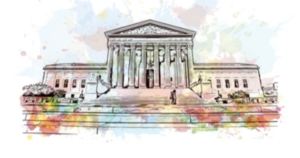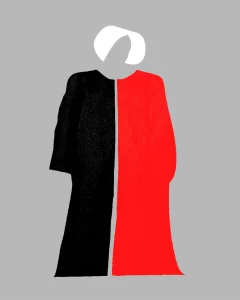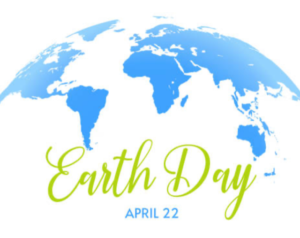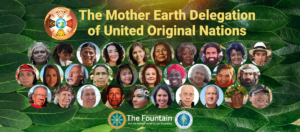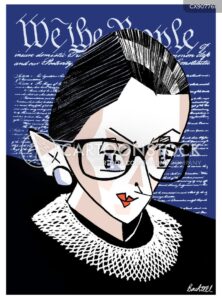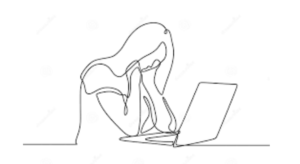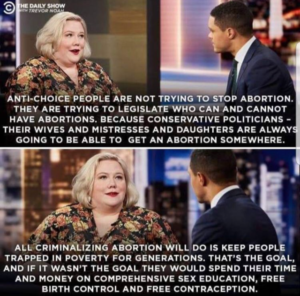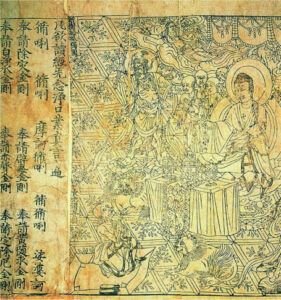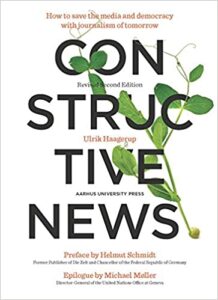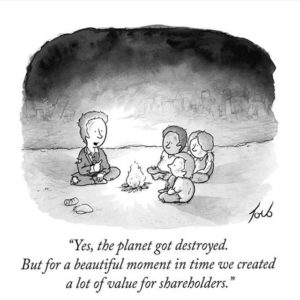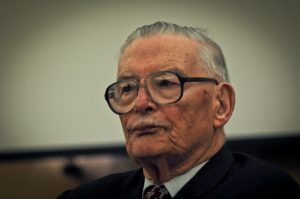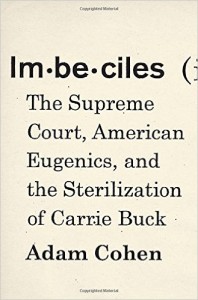Supreme Court
‘…on a moral basis.’
May 16, 2022P U C K
The Real Tragedy of Samuel Alito’s Logic
by, BARATUNDE THURSTON
“Yet this leaked Supreme Court ruling would steal that decision away from pregnant women and instead encourage a policy of forced birth in a society that does not value the lives of those being birthed—or those doing the birthing. This decision empowers those invested only in the creation of life, not the quality of life. If we cared about quality of life for the living, we would offer up more than “’houghts and prayers’ in response to our record levels of life-ending gun violence. We would move heaven and earth to reverse the life-ending effects of the climate crisis. But we aren’t regulating gun manufacturers or carbon-spewing industries. Instead, we’re choosing to use our finite resources to regulate women…”
[…]
“We need to acknowledge that this issue is not simple and that morality and legality are different things. From my reading of the Pew Research, even those strongly opposed to abortion on a moral basis don’t believe it should be illegal in most cases. I know women who’ve had abortions, and I can attest to the seriousness with which they’ve made that decision. It’s not fun. It’s emotional and difficult and painful, but it’s also something they deemed necessary. Most people don’t want to be in a position to have to choose an abortion.
For some women in, abortion is the only way to save their lives, and the new wave of incoming restrictions will bring new stresses and new threats. As a friend of mine and mother of three recently told me, ‘Suddenly planning for my children’s future is not about saving for college—it’s finding ways to protect them from being thrown in jail for having a miscarriage.’ We should not criminalize women or further isolate them. We need to trust women and close that gap between the practice and promise of this country on our path to liberty and justice for all. I think we can. I believe we must. I know it will be hard.”
[Full Piece]
I INVENTED GILEAD. THE SUPREME COURT IS MAKING IT REAL.
I thought I was writing fiction in The Handmaid’s Tale.
T H I S:
It ought to be simple: If you believe in “ensoulment” at conception, you should not get an abortion, because to do so is a sin within your religion. If you do not so believe, you should not—under the Constitution—be bound by the religious beliefs of others. But should the Alito opinion become the newly settled law, the United States looks to be well on the way to establishing a state religion. Massachusetts had an official religion in the 17th century. In adherence to it, the Puritans hanged Quakers. The Alito opinion purports to be based on America’s Constitution. But it relies on English jurisprudence from the 17th century, a time when a belief in witchcraft caused the death of many innocent people. The Salem witchcraft trials were trials—they had judges and juries—but they accepted “spectral evidence,” in the belief that a witch could send her double, or specter, out into the world to do mischief. Thus, if you were sound asleep in bed, with many witnesses, but someone reported you supposedly doing sinister things to a cow several miles away, you were guilty of witchcraft. You had no way of proving otherwise. Similarly, it will be very difficult to disprove a false accusation of abortion. The mere fact of a miscarriage, or a claim by a disgruntled former partner, will easily brand you a murderer. Revenge and spite charges will proliferate, as did arraignments for witchcraft 500 years ago. If Justice Alito wants you to be governed by the laws of the 17th century, you should take a close look at that century. Is that when you want to live? https://www.theatlantic.com/ideas/archive/2022/05/supreme-court-roe-handmaids-tale-abortion-margaret-atwood/629833/?utm_source=newsletter&utm_medium=email&utm_campaign=atlantic-weekly-newsletter&utm_content=20220515&silverid=%25%25RECIPIENT_ID%25%25&utm_term=This%20Week%20on%20TheAtlanticcomWednesday, April 20th, 2022
April 20, 2022The theme of the lost Feminine Value weaves like a golden thread through the mythology, poetry and literature of Western civilization, waiting to be redeemed at this present time when so much is at stake. Over the last sixty years there have been certain events which have healed a change of consciousness comparable to that which took place in 11th century Europe.
Like a multi-faceted diamond, there are many aspects to the merging influence of the Feminine. All are contributing to the healing of the long-standing dissociation between spirt and nature during the solar era. Each is intrinsic to a psychic impulse which might be called the recovery of the soul, an evolutionary impulse arising from the very heart of humanity and perhaps even from the heart of the Cosmos.
The influence of the Feminine is responsible for the growth of the Environmental Movement…
-Anne Baring
We’ve allowed our spirit to be poisoned [Merton].
Desmond Tutu:
The principle of transfiguration says nothing, no one and no situation, is untransfigurable.
“The Spirit of the Infinite will provide; not bare necessities, but everything.”
-Christian Larson, metaphysical author
“I firmly believe everything humanity could ever ned is already here, ready for us to discover. It seems as if Spirit has created a gargantuan puzzle for human beings to assemble over the course of millennia, slowly discovering all that is needed and the answers to any challenges we encounter.”
-Joanne McFadden
According to the first creation story, you are part of creation. You are made from common soil…dust, Genesis says; stardust, astronomers tell us…Together with all living things, we share the great of life, participating in the same cycles of birth and death, reproduction, recycling and renewal. […] It’s a good and beautiful thing to be an image bearer of God. But it’s also a big responsibility.”
-Brian D. McLaren, ‘We Make the Road by Walking’
‘The joy of welcoming the birds back and the bees and butterflies in the early morning is the Creation, the Creator, the returning…’ ღ
“Yet they are in us, those long departed ones (our ancestors), they are in our inclinations, our moral burdens, our pulsing blood, and in gestures that arise from the depths of time.” -Rilke
~
“If we could not see the sacred in nature and creatures, we soon could not see it in ourselves and, finally, we would not be able to see it all day. There is nothing that is not spiritual for those who have learned how to see.” -Fr Richard Rohr
~
On Gaia’s day, ‘We are thus ‘co-operators with God’, joining in the ‘repairing of the world.’ -Fr Richard Rohr
E
A
R
T
H
D A Y 
H U M A N S
We conscious folk have watched with compassion in our hearts and tears in our eyes and as our Mother Earth is disrespected for the comfort and profit of humans beings.
The Mother Earth Delegation of United Original Nations is bringing together original peoples from many different nations to share the wisdom of ancient prophesy and messages from the Earth herself.
THEY SAY:
“It’s time for us to listen to the direction available through Nature’s Laws. It’s time to step out of systems that are failing to sustain life, and step into solutions collaboratively designed to sustain all life.”
To find out more about the incredible work that’s being done to support our beloved planet, you can visit www.motherearthdelegation.com.
If you’re looking for an amazing way to celebrate this Earth Day, why not make a donation to the elders stepping up to save the world?
Incompetent judicial decisions, a political Supreme Court, and decisions yet to be made. Missing Ruth.
The world will keep turning
I hope I leave this place
Better than I found it
To be the lightning in the dark
Hold on tight you’ll be alright
You know it’s time
We’re comin’ of age
This is not a phase
Here comes, here comes, the change…’
Private Morality
December 9, 2021“Another world is not only possible she is on her way. On a quiet day, I can hear her breathing.” -Arundhati Roy
Justice Ginsburg: “For one thing, we should appreciate the women on whose shoulders we stand, women who said the same things we said many years later, but we spoke at a time when society was willing to listen.”
Write to them. Share your story.
Supreme Court
1 First Street
NE Washington DC 20543
‘Abortion is not just about “a woman and her body.” It’s also about a woman and her God, her sense of what is right and wrong, a woman and her own internal compass, a woman and her life and how she is called to live it. When I heard a young woman on a panel describe an abortion as no bigger deal than a pap smear, I remember two things: 1) feeling nauseated, and 2) thinking, “This has gotten insane. We’re going to lose this.”
I am thoroughly pro-choice, but not because I don’t believe abortion is a moral issue. I’m pro-choice because I believe it’s an issue of private morality…’
A deeply reflective and personal essay about the right and devastation of ending a pregnancy, a woman’s decision and her private morality…her choice. ~dayle
Abortion In a New Light.
The Answer with a capital A.
by Marianne Williamson
“With the Mississippi abortion case now before the Supreme Court, it appears that reproductive rights in this country could very likely be severely curtailed.
I was a child when the Roe V. Wade decision legalized abortion in the United States. Becoming sexually active years later, I never knew a time when a woman couldn’t assume her right to an abortion should she choose to have one. My late teens and twenties were a time of tremendous feminist tumult – often referred to as “a war between the sexes” – and a woman’s right to control her reproductive destiny was a huge part of our newly forged freedom.
I can’t remember a sense of huge controversy around Roe v. Wade in the years first following the decision. It was only later that the topic became a roiling argument throughout the country, more and more people expressing passionate positions either pro or con. Generations of women grew up taking the right to an abortion for granted, with seemingly little understanding of how fragile a right can be when its disappearance is only one Supreme Court decision away. I’ve often been astonished by women who didn’t seem to realize the significance of their political choices in regard to this fundamental freedom. No matter how many times you’d remind someone during presidential campaign season, “But the Supreme Court! The Supreme Court!” there were always those – including young women who I assumed were sexually active – who’d roll their eyes as though it simply didn’t matter. Never having known a time when the choice wasn’t theirs, they seemingly couldn’t imagine a time when it wouldn’t be.
What is happening now, then, has been brewing for years. And strident voices on both sides of the argument made it inevitable. While I’ve always been committed to a woman’s right to choose, I’ve been disturbed over the years by how the issue has been contextualized on the political left. I saw it as problematical both morally and politically.
I was always told growing up that it’s not government’s role to legislate morality. There were issues of public morality and those of private morality; while ethical decisions should weigh heavily in public policy, “government should stay out of people’s bedroom,” as my father used to say. While as citizens we should care deeply about the moral dimension of political decisions, when it comes to an individual’s private choices – choice that had no one effect on “the common good” – then government should have no say whatsoever. I have never deviated from that belief.
I’ve always recognized a moral dimension to the issue of abortion, but to me it’s an issue of personal morality. Denying a woman the right to her own moral choices, as well as the choice of what she will do with her body, is government overreach and transgression upon her freedom, period. But a casual abortion is as much a moral anathema to me as it is to any rightwing conservative. And the vast majority of women I’ve known – including those who have had abortions – feel the same. Whether or not to terminate a pregnancy is a deeply painful decision, and one made by most women because of ethical considerations: the failure to be able to financially support a child, her relationship to the father, health considerations and so forth. It’s hard enough deciding whether or not to terminate a pregnancy; the last thing a woman needs is to have the government weighing in on her decision.
Yet any suggestion that abortion is a moral issue has been considered by many in the pro-choice movement to be a slippery slope that would lead to disastrous political results. I very much disagree, however; I think our failure to recognize its moral dimension is part of what has led to disaster. Our failure to put the issue of abortion within a moral context been a gift to the anti-choice movement.
Over the years, an overly secularized left became stridently amoral on the issue of abortion. This made me squirm, not only because I felt it was wrong but because I could see that it aroused a deep reaction in those whose social and political leanings were more conservative than mine. Over the years we began to lose the social consensus that abortion should be legal, in part because of those who kept continually trying to argue that in essence it’s no big deal.
But it is a big deal. Abortion is not just about “a woman and her body.” It’s also about a woman and her God, her sense of what is right and wrong, a woman and her own internal compass, a woman and her life and how she is called to live it.
When I heard a young woman on a panel describe an abortion as no bigger deal than a pap smear, I remember two things: 1) feeling nauseated, and 2) thinking, “This has gotten insane. We’re going to lose this.”
I am thoroughly pro-choice, but not because I don’t believe abortion is a moral issue. I’m pro-choice because I believe it’s an issue of private morality, and I trust the moral decision-making of the American woman. It’s a deeply personal decision for a woman whether to terminate a pregnancy, and government should have no right to make that decision for her. An additional moral issue is that repealing Roe v. Wade will simply mean rich women can continue to have safe abortions (they always did), while poor women will be relegated to the days of back alley, dangerous abortion procedures. Economic injustice is itself a moral issue.
As a political candidate I was told on various occasions by people with an anti-choice orientation that they would vote for me despite my pro-choice positions and my support for Roe v. Wade. “But you do agree it’s a moral issue, right?” they would say to me. “I just need to know that you see that.” It was a very easy promise for me to make.
Abortion is one of several areas where the refusal of those on the left to include the moral dimension of an argument in its analysis, much less how it was to publicly communicated, has diminished the moral authority of progressivism as well as its deeper connection to the hearts of our fellow citizens. Treating people of faith as though their consideration of issues is too unsophisticated to be taken seriously has had a deeply deleterious effect on American politics: it already has – and will continue to, if left uncorrected – begun to shrink the political base of progressivism. It is a serious surrender of moral authority, and a surrender of moral authority almost inevitably leads to a surrender of political authority. It’s no accident that year after year, in poll after poll, we’ve watched support for reproductive rights fall. Yet no one was allowed to say, “Perhaps we could reconsider our approach to this.” Nope. Such conversation was suppressed almost fanatically by the self-proclaimed arbiters of exactly how we were permitted to talk about Roe v. Wade.
[Marianne Williamson]
In A Course in Miracles it refers to the Answer with a capital A. That answer is not about which one of us is right; in a free society, no one gets to have a monopoly on the truth. Our political as well as our spiritual salvation lies in learning to speak, to think, and to respond from a much deeper place. Stark binary choices provide little opportunity for truly creative problem-solving, much less a miracle. We will continue to crash into walls both political and personal until we deepen the level of consciousness from which we approach our lives. Yet when we do, our lives will transform. Our politics will transform. And our world will transform.
The war over reproductive rights is a symptom of a deeper problem, and until we address the underlying issue of how we speak to each other and listen to each other, respect each other and honor what our hearts are saying, we will remain divided in ever more dangerous ways.
____________________________________
[From The Daily Show with Trevor Noah.]
Free child care, free early prekindergarten, free conception, and education. No, as Marianne cringed and became nauseous hearing abortion is like pap smear. Horribly, no. There are layers, often complex layers a woman has to hold to make a deeply morality based decision. If SCOTUS eliminates viability, abortion will instantly be nullified in at least 20 states, making abortions illegal after six weeks, of course most women often don’t know they’re pregnant until a number of weeks later.
The Supreme Court will present their final arguments and a decision some time next summer, June 2022. If the conservative judges who were placed on the bench for the sole purpose of overturning Roe, they have their votes. Privileged women will continue to find abortion sites, perhaps in other states, yet those women in poverty won’t be able to drive long distances to find a clinic that will assist them; if they do assist, doctors may be arrested on criminal charges. It will fundamentally change the country where abortion has been legal for generations.
I urge you to write to the Supreme Court, all women…all ages. Tell your stories, explain to them your private morality, what could or did happen to you, be it going forward with having the baby, or ending the pregnancy and why you made that decision. What were the social services needed that you didn’t receive, i.e., contraception, education, medical care.
Here’s the address again:
Supreme Court
1 First Street
NE Washington DC 20543
From former CBS news anchor/journalist Dan Rather:
The issue of abortion is one on which fair minded people, honest to their own beliefs and moral codes, can disagree. But today was not about personal choice. It was about the law of the land that will make no exceptions other than those carved out by the states. And if the history of a time before legal abortions is any guide, and there is no reason to suspect otherwise, today will beget many personal tragedies, ruined lives, hardship, and despair. -Essay from Dec. 2, 2021, “Steady.”
What is the end game? Why subvert individual rights, dilute voting rights, gerrymandering, billionaire favor? Historian and Harvard professor Jill Lepore weighs in with her thoughts on her latest Pushkin/BBC Series about Elon Musk, episode #5 of “The Evening Rocket.”

“It’s a weird thing about being a historian, everything reminds you of something else. […] ‘Muskism’ asks us always to picture the future, but I find it hard not to keep picturing the past, yanked back, lassoed by likenesses. […] The people with the most money shouldn’t get to decide what happens on earth, or on the moon, or in the skies, or on mars, or any where. To me the largest story about the rise of ‘Muskism’, extravagant extreme fantastic capitalism, is its anachronism. I can’t tell you anything about the future of ‘Muskism,’ but it strikes me that for all its obsession with the future, ‘Muskism’ is trapped in the past. Elon Musk is a visionary, but what I’ve come to believe doing the research for the series is that those visions come from a future first imagined in science fiction long, long ago. Decades, sometimes more than a century ago, rockets to Mars, electric cars, cyptocurrency, a future without governments or banks, a future where engineers and scientists, and only engineers and scientists, have the answers. A future whose long dead authors very often pictured a world where the poor and powerless and the robots know their place, and it is
to serve the powerful quietly and obediently and without daring to claim sovereignty, or independence, or even intelligence.
This future was imagined by a very tiny number of men during an age of imperialism, before women could vote, an age of staggering economic inequality and brutal racial injustice, in an age of pandemic disease, unraveling democracies, and world war.
The present is tough, but that past is passed, and I don’t ever want it to be the future again.”
Some thoughts…
November 4, 2020It shouldn’t have been this close. After four years of cruel practices and criminal behavior, too many Americans who voted said, “Yeah, this is good.” So much to unpack. Beyond a divided–deeply divided–nation, the people of the United States are in a cold war, seemingly separated by identity politics–tragically, much of the divisiveness is born of disinformation, state television, and far right social media platforms. It will not end. Even if DT loses, he will lead a shadow presidency, haunting and restricting through his amplified media, restrict and diminish forward moving policy. A deeply Republican senate, led by an evil spirit…not hyperbole…along with a 6/3 Supreme Court, will basically make Biden a lame duck, while he tries to heal a nation.
“Win or lose, a lot more people voted for him this year, after watching him as president for four years, than voted for him last time.” [social media post]
It is dark day in this country. And we have so much to atone.
Today, post election and with votes still be counted, coupled with coup behavior and rhetoric from the current president, democracy seems to be only a frame of mind in this country…perhaps it always has been.
From Sleeping Giants:
“No matter what happens with this election, we’re going to have to contend with a media and social media ecosystem that rewards, incentivizes and monetizes the worst of our society, from hate to disinformation to harassment. It’s cooked into the business model. We currently live in a world where the largest advertisers support a network that openly espouses xenophobic, white supremacist ideas, carelessly spreads disinformation and sics it’s viewers on people with whom they disagree, putting them in danger. We’re dealing with social media platforms whose algorithms give an outsized platform to content that aims to vilify minority groups, drive division and spread falsehoods every single day and platform violent extremists and racists who organize real attacks on their websites. What’s worse is that these outlets and platforms thrive on opposition. It profits them. It’s better for business. It’s not hard to see if there’s a new administration that things will get worse, not better. We need to be more vigilant than ever about asking the companies that support these networks and platforms what kind of world they want to live in and to truly live the values that they outwardly express to their customers. But we also need to ensure that these platforms do not dig further into our government, swaying their policies. We need social media platforms held to account rather than being asked to write policy. They have proven that they cannot be trusted to govern themselves. All of this is to say that, no matter the outcome of the election, the work of activists and researchers and journalists and especially lawmakers is only starting. And that it’s more imperative now than it ever was.”
~
Sharing other voices:
While it’s too soon to know the presidential race outcome, this is clear: we must do more to counter the alternative information space FOX News and other Trump media create for Republicans. The race should not be this close given the objective reality of Trump’s performance.
-Evan McMullin, Former: CIA ops officer, GOP policy director, independent presidential candidate
Incredible how competitive Trump is with 230K Covid deaths and kids being locked in cages and everything else. Even if Biden wins he will have to govern in a trump country. This is who America is.
-Gabriel Sherman, journalist
To be clear, this wasn’t a presidential election, it was just a survey on how much this country loves racism and most white people checked the box for “very satisfied.”
-Robin Thede, actress and writer
“When a country shows you who it is, believe it the first time.”
-Anand Giridharadas
“I think the democratic sadness you’re seeing on social media isn’t fatalism or resignation to a Republican win–it’s sadness that we’re not seeing a full scale repudiation to Trumpism.’
[associate professor in Austin]
Before being Republican or Democrat, be human. Regardless of who wins the US election, no one has greater power over you than you. Our minds & hearts are much greater than any politics, and as sovereign beings, we get to choose peace, empathy & humanity.
-Jennifer Rose
From Fr Richard Rohr today, the day after election:
A Call to Be One
Wednesday, November 4, 2020
I return once again to the prophetic words of Sister Joan Chittister who calls us to make an unflinching commitment to act with integrity—out of the fullness of our being—not simply our pragmatic, comfortable, or fearful selves.
As a people, we are at a crossover moment. It is a call to all of us to be our best, our least superficial, our most serious about what it means to be a Christian as well as a citizen. . . .
Where in the midst of such polarization and national disunity is even the hope of oneing, of integrating the social with what we say are our spiritual selves? . . .
Even the ghost of an answer makes serious spiritual demands on us all: To heal such division means that we are obliged to search out and identify our own personal value system. It requires us to admit to ourselves what it is that really drives our individual social decisions, our votes, our political alliances. Is it the need to look powerful? The desire for personal control? . . . Do we have the courage to confront the debased with the ideal—even in the face of ridicule and recrimination—or is cowardice our secret spiritual sickness? In that case, our national health can only get worse.
A national cure also surely demands that we begin to see tradition as a call to return to the best of the past, not a burden to be overcome in order to secure the best of the present. It is the sense of a commonly held tradition of the common good—once a strong part of the American past—that we clearly lack in the present. . . .
[We must] make “Love one another as I have loved you” (see John 13:34) the foundation of national respect, the standard of our national discernment, the bedrock of both our personal relationships and a civilized society. . . .
To be one, we don’t need one party, one program, one set of policies. What could be duller, more stagnant, more destructive of the soulfulness it takes to create and preserve the best of the human enterprise than such a narrow-minded view of planetary life? What we need is one heart for the world at large, a single-minded commitment to this “more perfect union,” and one national soul, large enough to listen to one another for the sake of the planet—for the sake of us all.
So where can we look for oneing in the political arena? Only within the confines of our own hearts. Politics—government—does not exist for itself and, if it does, that is precisely when it becomes at least death-dealing if not entirely evil. . . .
In the end, politics is nothing more than an instrument of social good and human development. It is meant to be the right arm of those whose souls have melted into God.
More from Richard:
I consider Quaker author and activist Parker Palmer a true elder. He has clearly “fallen upward”—humbly learning and growing over the years while also generously giving of himself to build a better future with the next generation. From that vantage point, Palmer writes:
For those of us who want to see democracy survive and thrive—and we are legion—the heart is where everything begins: that grounded place in each of us where we can overcome fear, rediscover that we are members of one another, and embrace the conflicts that threaten democracy as openings to new life for us and for our nation. . . .
Of all the tensions we must hold in personal and political life, perhaps the most fundamental and most challenging is standing and acting with hope in the “tragic gap.” On one side of that gap, we see the hard realities of the world, realities that can crush our spirits and defeat our hopes. On the other side of that gap, we see real-world possibilities, life as we know it could be because we have seen it that way. . . .
If we are to stand and act with hope in the tragic gap and do it for the long haul, we cannot settle for mere “effectiveness” as the ultimate measure of our failure or success. Yes, we want to be effective in pursuit of important goals. . . . [But] we must judge ourselves by a higher standard than effectiveness, the standard called faithfulness. Are we faithful to the community on which we depend, to doing what we can in response to its pressing needs? Are we faithful to the better angels of our nature and to what they call forth from us? Are we faithful to the eternal conversation of the human race, to speaking and listening in a way that takes us closer to truth? Are we faithful to the call of courage that summons us to witness to the common good, even against great odds? When faithfulness is our standard, we are more likely to sustain our engagement with tasks that will never end: doing justice, loving mercy, and calling the beloved community into being.
Parker Palmer’s understanding of the “tragic gap” recognizes that no matter what we do, we can never completely solve the problem. In all our actions, there is always a space left incomplete, imperfect, which God alone can fill. The search for “the perfect” often keeps us from “the good.” The demand for one single issue about which we can be totally right actually keeps us from reading the whole picture—often this is true in regard to voting.
gate gate pāragate pārasaṃgate bodhi svāhā
भगवतीप्रज्ञापारमिताहृदय
In our ugly and injurious present political climate, it has become all too easy to justify fear-filled and hateful thoughts, words, and actions in defense against the “other” side. We project our anxiety elsewhere and misdiagnose the real problem (the real evil), forever exchanging it for smaller and seemingly more manageable problems. The over-defended ego always sees, hates, and attacks in other people its own faults—the parts of ourselves that we struggle to acknowledge. We do not want to give way on important moral issues, but this often means we don’t want to give way on our need to be right, superior, and in control. It is our deep attachment to this false or manufactured self that leads us into our greatest illusions. Most of us do not see things as they are; we see things as we are.
The Heart Sutra (sometimes called The Heart of the Perfection of Wisdom) is considered by many to be the most succinct and profound summary of Buddhist teaching—surely it must have something to say to all of us. It ends with a mantra that is considered “the mantra beyond compare” because of its daring proclamation of the final truth that takes our whole life to uncover and experience. It is enlightenment itself and hope itself in verbal form. It is the ultimate liberation into Reality.
Here is the Sanskrit transliteration of the refrain:
Gate gate pāragate pārasamgate bodhi svāhā!
Here is how it is pronounced:
Ga-tay, ga-tay, para ga-tay, parasam ga-tay boh-dee svah-ha!
Here is the meaning:
Gone, gone, gone all the way over, the entire community of beings has gone to the other shore, enlightenment—so be it!
This is not meant to be a morbid or tragic statement, but a joyous proclamation, in its own way similar to Christians saying “Alleluia!” at Easter. It is liberation from our grief, our losses, our sadness, and our attachments—our manufactured self. It accepts the transitory and passing nature of all things without exception, not as a sadness, but as a movement to “the other shore.” We do not know exactly what the other shore is like, but we know it is another shore from where we now stand and not a scary abyss.
I would like to offer you a short and inspired litany, and encourage you to make your own additions. The response in every case is a shortened to “Gone, gone, entirely gone!” (for the sake of brevity and impact). It might be called a Litany of Liberation or Detachment:
All the centuries before me:
Gone, gone, entirely gone!
All the nations of the earth:
Gone, gone, entirely gone!
All kings, generals, and governors:
Gone, gone, entirely gone!
All the wars, plagues, and tragedies:
Gone, gone, entirely gone!
All human achievements by individuals and groups:
Gone, gone, entirely gone!
All sickness, sin, and error:
Gone, gone, entirely gone!
All our identities, roles, and titles:
Gone, gone, entirely gone!
All hurts, grudges, and memories of offense:
Gone, gone, entirely gone!
All enslavement, abuse, and torture:
Gone, gone, entirely gone!
All disease, afflictions, and lifetime wounds:
Gone, gone, entirely gone!
All rejections, abandonments, and betrayals:
Gone, gone, entirely gone!
All human glory, fame, money, and reputation:
Gone, gone, entirely gone!
Your logical, educated mind may say, “Oh, but these things continue in human memory, consciousness, and the standing stones of culture,” which is true and good. That is not the point this sutra is intended to communicate, however; this is ritual and religious theater, not rational philosophy. In terms of all those who preceded us, these things are indeed “Gone!” (Buddhism also uses the word “Empty!”) It takes just such a shock to encourage the ego to let go of the passing self, the false self, the relative self, the self created by memory and choice.
All comforts, luxuries, and pleasures:
Gone, gone, entirely gone!
All ideas, information, and ideology:
Gone, gone, entirely gone!
All image, appearance, and privacy:
Gone, gone, entirely gone!
All our superiority, self-assuredness, and expertise:
Gone, gone, entirely gone!
All human rights, ambitions, and fairness:
Gone, gone, entirely gone!
All personal power, self-will, and self-control:
Gone, gone, entirely gone!
This is the spiritual art of detachment, which is not aloofness or denial, but the purifying of attachment. It isn’t often taught in capitalistic societies, where clinging and possessing are both means and ends, accumulation is the primary measure of progress, and personal power or self-will is both the foundational myth and supreme idol.
In our world, detachment itself can become a kind of EXODUS, an abandoning—whether forced or chosen—of the very things that give us status, make us feel secure or moral, and oftentimes that pay the bills.
In his book No Man Is an Island, Thomas Merton discussed the spiritual link between detachment and hope. Yes, hope! This connection may seem a bit counterintuitive at first, if not contradictory. Yet, as he explains,
We do not hope for what we have. Therefore, to live in hope is to live in poverty, having nothing. . . . Hope is proportionate to detachment. It brings our souls into the state of the most perfect detachment. In doing so, it restores all values by setting them in their right order. Hope empties our hands in order that we may work with them. It shows us that we have something to work for, and teaches us how to work for it.
We live in a time of great hostility, and the temptation from which we must defend ourselves is to pull back from others, deny our shadow, and retreat into our own defended camps or isolated positions. This temptation is not detachment, but the giving over of ourselves to the illusion of separation. True spiritual action (as opposed to reaction) demands our own ongoing transformation, often changing sides to be where the pain is, as Jesus exemplified in his great self-emptying. Rather than accusing others of sin on the Left or the Right, Jesus instead “became sin” (2 Corinthians 5:21). He stood in solidarity with the problem itself, and his compassion and solidarity were themselves the healing.
Therefore, “let us go to him, then, outside the camp, and bear the humiliation he endured. For there is no permanent city for us here, but we are looking for the city that is to come” (Hebrews 13:13–14).
Richard Rohr

Dialogue. And listen.
October 10, 2020And lead.
Ruth Bader Ginsburg “knew the power of example—that if you live your own life according to your principles, others will follow,” writes her former clerk, Ryan Y. Park, Solicitor General of North Carolina.
The Atlantic
My Friend and Boss, Ruth Bader Ginsburg
“A big deal in the revival of local news: Nonprofit Mountain State Spotlight
Dialoging.
Dr. David Bohm:
“Dialogue is really aimed at going into the whole thought process and changing the way the thought process occurs collectively. We haven’t really paid much attention to thought as a process. We have engaged in thoughts, but we have only paid attention to the content, not to the process.
It is proposed that a form of free dialogue may well be one of the most effective ways of investigating the crisis which faces society, and indeed the whole of human nature and consciousness today. Moreover, it may turn out that such a form of free exchange of ideas and information is of fundamental relevance for transforming culture and freeing it of destructive misinformation, so that creativity can be liberated.”
Leah Garces:
The first lesson I learned is that we have to become comfortable with being uncomfortable. Only talking to people who agree with us, it’s not going to get us to the solution. We have to be willing to enter other people’s space. Because quite often, the enemy has the power to change the problem that we’re trying to solve.
The world’s smallest and biggest problems, they won’t be solved by beating down our enemies but by finding these win-win pathways together. It does require us to let go of that idea of us versus them and realize there’s only one us, all of us, against an unjust system. And it is difficult, and messy, and uncomfortable.
Seth Godin:
The arc and the arch.
They sound similar, but they’re not.
An arc, like an arch, is bent. The strength comes from that bend.
But the arc doesn’t have to be supported at both ends, and the arc is more flexible. The arc can take us to parts unknown, yet it has a trajectory.
An arch, on the other hand, is a solid structure. It’s a bridge that others have already walked over.
Our life is filled with both. We’re trained on arches, encouraged to seek them out.
But an arc, which comes from “arrow,” is the rare ability to take flight and to go further than you or others expected.
HOW TO HAVE A CONVERSATION WITH YOUR POLITICAL OPPONENTS
SANNE BLAUW
This story is from Strangers in Their Own Land by Arlie Hochschild.
‘For this book, the professor emerita of sociology immersed herself in the American political right wing. Over the course of five years, she regularly stayed in ultraconservative “Bayou Country” in Louisiana. She herself comes from lefter than left Berkeley, California. She couldn’t have left her bubble any further behind.
‘When left-wing sociologist Arlie Hochschild went to live in a right-wing stronghold in the American South, she was entering “enemy” territory.
But, by listening to the people there – instead of arguing against them – she distilled a clear picture: right-wing Trump supporters felt like victims of a society that had left them behind.
In an era where debate has descended into a televised shouting match, it’s easy to feel like you’re at war with people who disagree with you.
But Hochschild learned that by laying down our arms and trying to understand, even empathise with, our political opponents, we can learn how to have constructive political conversations.’
You don’t have to agree with political opponents to understand where they’re coming from
‘Having a heart-to-heart conversation with an ideological opponent can feel uncomfortable – unsafe even. But sociologist Arlie Hochschild proves that it pays off. She immersed herself in a conservative stronghold in the Southern United States for five years and wrote a book about it.’
Not everyone agrees with this approach, Hochschild said during a 2016 interview with Ezra Klein. It can feel as though you’re surrendering, laying down your weapons and walking over to the enemy. But, she says: “if you want to compare it to anything, it’s a diplomatic mission. It’s saying: look, we can work this out, let’s see what the basis of that could be”.
Whether it’s about corona, climate or benefits, let’s carry out these diplomatic missions more often. That doesn’t mean you have to agree with each other, but at least you’re making a genuine attempt to understand the other person.’
Kavanaugh, Rot, Corruption & Capitalism
October 7, 2018“You only live 26,000 days — wear them out.” Quincy Jones
The Economy’s Not Booming. Capitalism Is.
What Happens Capitalism Booms — But Only at Everyone Else’s Expense?
by, Umair Haque
“Here’s a secret.
The economy’s not booming — capitalism is. And “the economy” and “capitalism” are hardly the same thing. Hence, economic indicators have stopped telling us how well people’s lives are really faring — the state of their true “welfare”, as it were, which is an economic term for general prosperity (not handouts) — in striking, sharp, and gruesome ways.
That difference is the story that isn’t told. It can’t be — because American economists assume that capitalism is the answer to the question they should be asking. “What kind of institutions does real prosperity require?” Assumption: only capitalist ones. They’re playing Jeopardy — not thinking about society. Hence — “the economy’s booming!!” — as long as a few measures of capitalism are. And over the years, even those measures — which were largely empty to begin with — have had whatever tiny shreds of meaning which were once in them plucked out, excised, and removed.”
[full article: https://eand.co/the-economys-not-booming-capitalism-is-8a180c97e06d]
Constitutional Rot Reaches the Supreme Court
by, Jack M. Balkin
“The fight over the Kavanaugh appointment exemplifies our country’s advanced case of constitutional rot. The rot has been growing for some time, and has now reached the Supreme Court of the United States. The Supreme Court is unlikely to save us from decay. We will have to do that ourselves.
As I have argued in this lecture, our country has gone through cycles of constitutional rot and renewal throughout its history. We are at (what we can only hope is) the most extreme point in a cycle of constitutional rot. Unfortunately, we are also at the high point of a cycle of party polarization. And, to make matters worse, we are also at the end of the debilitated Reagan regime, with a new political regime yet to be born. The endings of political regimes are highly confusing periods regardless; extreme party polarization and advanced constitutional rot make our current period even more difficult.
[…]
Right now we are in an especially corrupt moment and the courts are unlikely to help extricate us. They may even make things worse in the short run. And they are likely to be compromised and tainted by the corruption that surrounds them. But that does not make me a Thayerian or a Holmesian. One should be guided by the nature of the times. Rather than oppose judicial review per se, one should simply not expect too much from courts, and endeavor to keep them from doing too much harm. Things will eventually change. In the meantime, it is best not to look to an institution that cannot and will not help the country.
The lesson of history seems clear enough: During a period of advanced constitutional rot and high political polarization the federal courts are unlikely to be an instrument of constitutional renewal. Renewal will have to come from political mobilization instead.”
https://balkin.blogspot.com/2018/10/constitutional-rot-reaches-supreme-court.html?m=1]
[Not only is he a sexual predator and liar, Brett Kavanaugh has overruled federal regulators 75 times on such cases as clean air, consumer protections and net neutrality.]
‘We come with all these parts and no instruction on how to put them together.’
-Mark Nepo
Out and about this morning the predominate conversations were about the Supreme Court confirmation and our current administration. One women in her early 70s told an acquaintance, “I was raised in a Republican house my entire life and my parents would be outraged.” The vile and decisive rhetoric continued from the oval shaped office this morning with slander and additional lies. McConnell, already planning his re-election to the senate in 2020 (He’s 76), said in a report on Saturday, the day of BK’s confirmation, that he isn’t done with his “project” to revamp the nation’s courts. U.S. historian Jon Meacham assured us in Ketchum on Wednesday [10.3] our “Constitution was written for moments like this, and “the Founders would be surprised it took us this long” to get a president like D.T. He added: “In the past, we have moved past these times, eras, to endure and prevail.” The political climate did not commence with 2016. The current narcistic and corrupt leader landed on a throne built by an ideology developed in the 70s and 80s. Its creator did not live to see it to fruition, but those around him did. This article by Senior Research Analyst Lynn Parramore, Institute for New Economic Thinking, lends acute awareness to James McGill Buchanan ideology, a Tennessee-born Nobel laureate. “If he were alive today, it would suit him just find that most well-informed journalists, liberal politicians, and even many economics students have little understanding of his work. If Americans really knew what Buchanan thought and promoted, and how destructively his vision is manifesting under their noses, it would dawn on them how close the country is to a transformation most would not even want to imagine, much less accept.” This is not conspiracy. Parramore’s analysis is based on research by Duke University historian Nancy MacLean (‘Democracy in Chains’, 2017). She could not “gain access to Buchanan’s papers to test her hypothesis until after his death in January 2013. Billionaire industrialist Charles Koch was a big fan and has pushed Buchanan’s ideology into our politics and policies for decades. It’s a worthy, and important, read as we approach another election. It has connected so many dots for me socially and politically, explaining the IS of, why is this happening? “Concepts determine the route that attention follows” [N. Goddard].
“I could stand in the middle of Fifth Avenue and shoot somebody and I wouldn’t lose any voters, okay? It’s like incredible.” For anyone who missed it last week, the NYTimes reprints the extraordinary journalistic year-long investigation of DT’s corrupt tax schemes in today’s print paper.
https://www.nytimes.com/…/donald-trump-tax-schemes-fred…
#NOV6
Established in 1982.
July 8, 2018‘An elite network of white dudes changing the world.’ -Samantha Bee
Ian Millhiser, a legal policy analyst at the progressive Center for American Progress: noted. The movement simply continues to build up new talent in the off-years.
“What the Federalist Society does really well, is it identifies that really really right-wing kid at Harvard Law School who is legitimately talented and who will do horrible things to the law but will do it very competently because they’re a very talented lawyer,” added Millhiser. “And they identify those people, and from the beginning of their career, give them opportunities, help them find those clerkships, help them network.”
The Federalist Society is one of the most powerful and unique organizations in the conservative orbit, describing itself as “a group of conservatives and libertarians interested in the current state of the legal order.”
Throughout its history, the group, founded in 1982 at Yale Law School, has prided itself on not explicitly taking policy positions on issues but rather creating the conditions in which conservative legal ideas can be debated and thrive. This year, the conference takes place in an environment that is perhaps more amenable to these ideas than at any time in recent years.
[The Federalist SocietyBy Amanda Terkel, HuffPost, 2011]
https://www.huffingtonpost.com/2010/11/18/federalist-society-post-bush_n_785049.html
The Federalist Society will soon have a 5–4 stranglehold on the Supreme Court.
[Slate, Lawrence Baum & Neal Devins]
In appointing a Federalist justice, DT will be sealing a deal between Republican presidents and the conservative legal movement. In effect, that deal began in 1985. Under the leadership of Attorney General Edwin Meese, the Department of Justice in Ronald Reagan’s second term sought aggressively to advance conservative goals in the judiciary. By hiring staffers on the basis of ideological commitment, Meese sought to groom young conservative lawyers who would later become federal court judges. The Federalist Society—established as a law student group in 1982—was an important component of this strategy; it enabled Meese and others in the administration to identify promising candidates for significant government posts. Meese hired the society’s founders as special assistants and tapped Stephen Markman, who headed the Washington chapter of the Federalist Society, to become the assistant attorney general in charge of judicial selection.
[…]
Unlike DT’s finalists, Kennedy was not associated with the Federalist Society or the conservative legal movement. His voting record bears this out. Kennedy took moderate to liberal positions on some highly visible issues. He voted to reaffirm Roe v. Wade in 1992 and ruled against Texas’ stringent abortion regulations in 2016.
[…]
With the appointment of a new justice, the Republican majority on the court will be composed of justices who have risen through the ranks of the conservative legal movement and who are committed to the ideals of that movement. It will truly be the Federalist Society’s court.
NOTE:
Senate Majority Leader Mitch McConnell is a Federalist Society member.
Bernie Sanders: ‘It’s time to come together.’
July 28, 2016‘Now, more than ever, is the time for millions of families to come together and revitalize American democracy.’
-Bernie Sanders
“As he put it last July, in an interview aired on C-span, when he was asked whether he would ever run as a third-party candidate, “I made the promise that I would not, and I will keep that promise. And the reason for that is I do not want to be responsible for electing some right-wing Republican to be President of the United States.” Sanders has kept that promise in letter, and in spirit, by endorsing Hillary Clinton. He’s doing what he said he’d do, and saying why. “Think about the Supreme Court Justices that Donald Trump would nominate and what that would mean to civil liberties, equal rights, and the future of our country,” Sanders said last night. He does not want to turn over the country to a racist demagogue who would irreparably damage it, when there is a candidate who agrees with him on many, if not all, issues and who is temperamentally and intellectually capable of doing the job.”
[…]
“No President, no matter how well-intentioned or progressive, can make any real change without the moral and pragmatic pressure of a grassroots movement. And he said it again last night, because Sanders is nothing if not consistent. “Election days come and go, but the struggle of the people to create a government which represents all of us and not just the one per cent . . . that struggle continues.”
http://www.newyorker.com/news/news-desk/bernie-sanderss-struggle-continues
Photo:Philadelphia, Pennsylvania – Sen. Bernie Sanders (I-VT) takes the stage to deliver a speech on the first day of the Democratic National Convention at the Wells Fargo Center in Philadelphia. Monday, July 25, 2016.
Credit: Philip Montgomery for The New Yorker
1924 Immigration Law & Anne Frank
February 27, 2016‘NPR’s Robert Siegel discusses Adam Cohen’s new book telling the story of the 1927 Supreme Court case Buck v. Bell, the ruling permitted the state of Virginia to sterilize an ‘imbecile’ – – a scientific term of the day.’
—
How many people, ultimately, in the U.S. do we think were sterilized under cover of such laws?
Well, we think about 70,000, which is an extraordinary number. But then, an untold number of other people were just taken away, as Carrie Buck and her mother had been, and kept in colonies so that they couldn’t reproduce. And that’s another kind of punishment that eugenics inflicted on a large number of Americans. You know, there’s one other group that, you know, was very terribly harmed, which is all the people who would’ve immigrated to America but for the 1924 immigration law that was enacted for eugenic reasons. And this intentionally shut off immigration of Jews, Italians and Asians, who were thought to be genetically less gifted, and prevented a lot of Jews from fleeing Nazi Germany. And as we know, some letters came to light some years ago in which Otto Frank wrote to the State Department trying to get visas for his family, including his daughter, Anne Frank. And they were turned down because of this 1924 law. So it’s interesting that when we tell the story of Anne Frank we think that, you know, she died in [Bergen-Belsen] because the Nazis thought that Jews were inferior. But to some extent, she also died in [Bergen-Belsen] because the American Congress thought that Jews and other people like that were inferior and closed the door to them.
http://www.npr.org/2016/02/26/468297940/imbeciles-explores-legacy-of-eugenics-in-america

